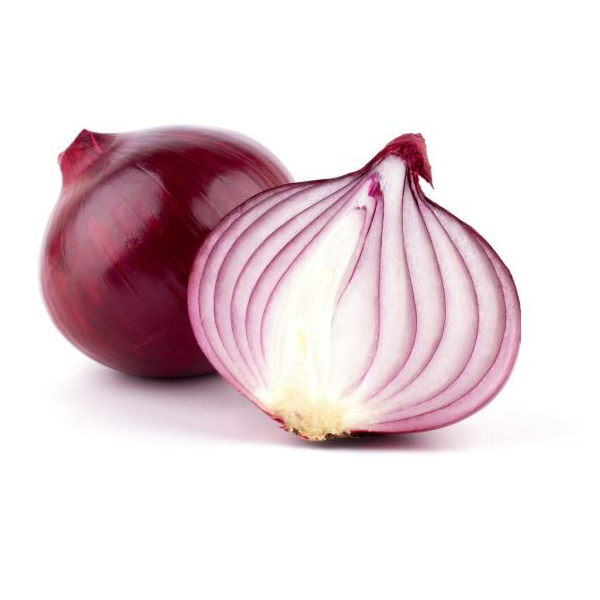Products → Red Onion
RED ONION

Interesting Facts:
- Ancient Roots: People have been growing onions for over 5,000 years. Ancient Egyptians, Greeks, and Romans loved them not just for food but for their medicinal uses too.
- That Vibrant Color: The striking red or purple shade comes from anthocyanins, the same pigments in berries and grapes that pack an antioxidant punch.
- Flavor That Shines: Raw red onions are mild and sweet, perfect for sandwiches or salsas. Cook or caramelize them, and they get even sweeter.
- Kitchen All-Star: You'll find them in salads, salsas, or roasted dishes. Pickling brings out their sweetness, making them a go-to in global cuisines.
- Allium Family Member: Red onions are part of the Allium crew, alongside garlic, leeks, shallots, and chives, all known for their zesty aroma and health perks.
- Global Favorite: Onions are grown everywhere, with China, India, and the U.S. leading the way. Red onions are especially popular for their color and taste.
- Storage Tips: Keep them in a cool, dry spot with good airflow. They don't last quite as long as yellow onions due to lower sulfur content.
- Cultural Meaning: Onions have long symbolized strength and resilience, with their layers seen as a nod to unity in many cultures.
Health Benefits:
- Antioxidant Powerhouse: Thanks to anthocyanins and quercetin, red onions have more antioxidants than white or yellow varieties, helping protect your cells.
- Heart Helper: Their flavonoids can lower cholesterol, ease blood pressure, and boost heart health by improving circulation.
- Fights Inflammation: Sulfur compounds and antioxidants work together to reduce inflammation, which may help with conditions like arthritis or diabetes.
- Immune Boost: Red onions have natural antibacterial and antiviral properties to help fend off infections.
- Blood Sugar Support: Some compounds may improve insulin sensitivity, which is great for managing diabetes.
- Cancer-Fighting Potential: Research suggests quercetin and sulfur compounds might slow the growth of certain cancer cells, especially in the colon or stomach.
- Gut Health: They're rich in prebiotics, feeding the good bacteria in your gut for better digestion.

